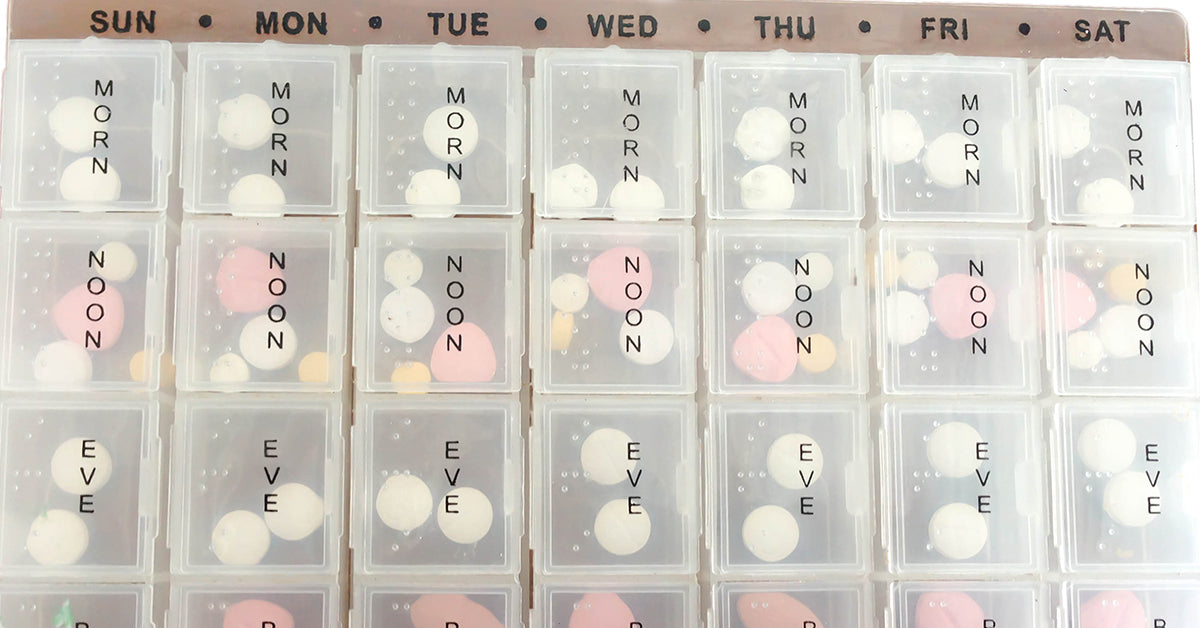Holistic Approach to Prior Authorization for Genetic Testing Is Key in Making Sure People Get Right Tests, Best Care in Timely Manner
-
Sep 15, 2022
Genetic testing is becoming a greater part of health care, as providers can take advantage of it to help inform patients’ diagnosis and treatment. Multiple tests are now available, and many health plans are covering their costs if certain criteria are met. But that’s a tall order with more than 77,000 genetic tests available and new tests constantly coming to market.
Many payers have prior authorization for genetic tests: An AHIP industry survey conducted between September and December 2019 found that genetic testing was the third most common treatment for prior authorization behind specialty drugs and high-tech imaging.
While that same survey found that almost all commercial health plan respondents — 44 plans covering 109 million members — said they designed their prior authorization programs using peer-reviewed evidence-based studies, an American Medical Association (AMA) survey of more than 1,000 practicing physicians in December 2021 found that 30% of them said that prior authorization criteria are rarely or never evidence based.
In addition, almost all of the respondents to the AMA survey said that they have experienced care delays for people whose treatment requires prior authorization. And 84% of physicians said that prior authorization for medical services has increased over the past five years, according to the AMA.
AIS Health, a division of MMIT, spoke with Kelly Athman, senior director of medical affairs at InformedDNA who has been a board-certified genetic counselor since 2010 and has more than 15 years of experience in the health care industry, including the health plan space, about the current genetic testing landscape.
AIS Health: How would you describe payers’ coverage of genetic testing?
Athman: It does vary quite a bit between payers. Many payers are approaching the coverage of genetic testing pretty similarly to how they approach coverage for other clinical specialties, often by a single test or procedure code. When I was a practicing genetic counselor, I would often see little consistency between some policies for some payers, different plans and seeing many different patients who had different insurances. So that does add a layer of complexity when you’re comparing how genetic testing is being covered today.
AIS Health: Are there certain diseases and/or biomarkers that are almost always covered? Are there some that are hardly covered but should be? (For example, I’ve heard BRCA testing is almost always covered in breast and colorectal cancer but not in other cancers.)
Athman: When it comes to coverage of certain diseases and biomarkers, we know that clinical utility evolves over time. It’s kind of a moving target. When new tests come out, there’s often a gap between the time a test is clinically available from a commercial laboratory to when that might meet medical necessity [and] clinical utility standards for insurance coverage. The basis of that really is in peer-reviewed literature establishing clinical utility, national guidelines and professional societies supporting the use of those newer tests within clinical practice, and then…that allows payers to open up that coverage to a wider swath of people. When it comes to that emerging evidence, it is taking time to evolve and develop. So I wouldn’t necessarily think about it as an individual test but almost like a continuum of how test coverage evolves over time.
If you’re thinking about specific tests, I can give an example. For example, chromosomal microarray testing was something that, when I was in clinical practice, was first being offered clinically by laboratories to look at the chromosomes, and it took a little while for payer policies to adopt that coverage and support that broader use. And once it became more established, and more evidence came out regarding the benefits of that type of testing, it really became the standard when you want to look at chromosomal differences, and [a] look toward those coverage policies [showed] that it was something that payers were adopting more readily as part of their policies.
You also asked the question…about are there certain tests that aren’t getting coverage or are hardly getting covered? What I would say to that is I think that there are some emerging areas right now in genetics and clinical genetics such as pharmacogenetic testing. That is something that I think we might be seeing on the horizon, a little bit more expansion of coverage, and that’s just because there’s emerging evidence that certain types of pharmacogenomic tests and biomarkers can really make a difference when considering things like chemotherapy regimens for individuals who are undergoing treatment for cancer. So that’s an emerging area that I expect to see a little broader coverage of.
AIS Health: What are limitations in payers’ coverage of genetic testing, and how can those be overcome?
Athman: I think that is the main question, right? It’s really how can we overcome some of those gaps between the time that testing comes out onto the market to the time when it is something that is considered clinically useful? Having that impact to positively change people’s health care. And a lot of what that comes down to is really having a cohesive approach to how payers are thinking about genomics benefit management.…Genomics benefit management framework…is based on policy and really having that genomics expertise either in-house or with experts out in the field to really inform that policy. And for genetics, it really impacts every organ system, so I think there’s a lot that payers really have to cover when it comes to thinking about just the evidence, even broader, the range and the volume, what they have to think about when it comes to coverage. It goes really way beyond those other medical specialties when it comes to that breadth of information needed to make that policy. So involving genomics experts in that coverage policy development really is something that I think is key because it’s taking that real-world experience and hopefully helping payers cover the right tests, the tests that are clinically useful, clinically impactful for their members.
AIS Health: What are misconceptions and/or knowledge gaps among payers with respect to genetic testing, how can these be addressed, and by whom (e.g., manufacturers)?
Athman: There are a lot of different players in that space for sure. And the genetic testing market today…is rapidly growing in size and complexity; it’s changing daily. When it comes to that sheer breadth of knowledge, for payers that’s a challenge with all those changes and new tests and new evidence coming out. And so, again, I think genomics specialists can really be that throughline to offer that extra support for policy development and provide that current evidence-based policy criteria or guidance on how to effectively and appropriately incorporate…new tests, new technology, into the current policies.
That would probably cover that gap we see between the time that something comes onto the commercial market to when it arrives in that policy. And that might require payers to really think about the timing of when they address those policy changes specifically for genomic coverage policies. I worked in our utilization management group for quite a while and directed that until just recently when moving to medical affairs, but my experience with the payers that we worked with [was that] oftentimes they would have an annual or biannual review process for coverage guidelines and making sure that they were keeping them up to date, and that might make sense for many of the medical specialties out there. For genomics, I would say that we recommend more frequent updates,…even a quarterly update, to make sure that individuals are getting that new information covered or the new evidence [is included] within that policy so that it can expand coverage appropriately.
And you mentioned manufacturers. When thinking about who can really help with the gaps, I think the key would be finding a neutral, unbiased source of guidance. A lot of commercial entities want their test to be successful; they want to be turning a profit and ensuring that they are profitable so they can continue to do that great work. But what I would say is that neutral, unbiased sources would be key in helping to develop that policy because those types of experts are able to really tease out what are the essential keys to really making a clinical impact in a positive way for people and their health.
AIS Health: Do issues exist with genetic counseling, both before and after testing? If so, how can these be overcome?
Athman: This is a question that I might reframe a little bit. Instead of focusing on issues, I would start by thinking about some of the benefits that genetic counseling, both pre-test and post-test, can offer patients. When it comes to genetic counseling in my experience, many patients have access for pre-test genetic counseling through the suggestion of their payer or their provider. I’ve found that genetic counseling can be really helpful for them to understand the potential benefits but also limitations of what that genetic testing can offer and what it can mean or not mean potentially for their health.
A lot of patients, when faced with that pre-test choice and that information,…can make an informed choice [about] whether that test is really something that they would like to pursue at all or even just at this time.…So genetic counselors, especially in my work, we always want to find the right test for the right patient at the right time to ensure that that patient can make those informed choices about their health and feel empowered to do so. So I say that’s the benefit of pretest counseling.
[Benefits of] post-test counseling…would be to understand the nuances of those results. Sometimes results of genetic testing can be quite complex and something that really takes a genomics professional to dive deep into the literature to really understand a little bit more about that result in order to explain it in a way that can make sense for that patient’s care and really develop an intricate care plan and partnership with their care team.
I also want to say, too, that when it comes to post-test counseling, there are really a lot of benefits…even if it’s a result that doesn’t necessarily show a specific genetic cause, called a negative result. There are really some benefits to talking about what that might mean for that individual but also helping people understand what that could mean for family members. And depending on the clinical situation, that can really vary. So I think having that support in post-test genetic counseling is really important to uncover some of those nuanced types of situations based on a patient’s personal and family history.
AIS Health: Do payers usually require prior authorization for genetic testing? In situations where they do, what does the prior authorization require?
Athman: Again, I will just say that this varies, so I will try a more general answer. Some national and regional payers do require prior authorization for genetic testing services. And…a lot of national payers are covering the cost of genetic counseling as part of their benefits.…Prior authorization requirements, again they do differ between payers and plans, and in general I would say prior authorization offers providers an opportunity to submit information about that test that’s being requested, such as the test name, the performing laboratory, the billing codes, their procedure codes for that test and also some medical information about how that test will help someone change their care plan or impact their care plan. So that could be in the form of medical records or some laboratories that have [performed the test] to show the need for this genetic testing or even a letter of medical necessity. Some providers choose to write that very specifically to a health plan.
AIS Health: Are there ways that prior authorization requirements should be modified?
Athman: I do think that just like health care in general, it is evolving. I think there is time and room for evolution in the utilization management space. The biggest thing that we want to be doing in health care is supporting patients to get, again, that right test at the right time to help their care and improve the care that they can experience.
The biggest area that we need to think about in utilization management is moving forward in a way that can address the needs of patients quickly and effectively while helping them utilize those limited health care dollars that we have as a community. We want to make sure that people are getting that care that makes a difference and [is] impactful but also [make sure they are protected] from harm potentially for care that may not be up to snuff when it comes to the medical evidence behind that and also ensuring that they’re making informed health care choices based on good evidence and tests that really are making a difference.
Again thinking about that holistic vision of genomics benefit management, it really starts with that clinical policy. And I think that if there’s evidence-based clinical policy in place for genomic testing, that can almost be a guide for providers and patients to really understand where we’re at in that space of clinical utility. And from there, [with] prior authorization, people can define what that should look like based on what can be most impactful.…Also in that cycle of patient navigation, we want to make sure that people have guides throughout that process of going through genetic testing with genetic counselors, for instance, certified genetic counselors and navigating, again, through the results and what that might mean for their downstream care. And that includes supporting physicians in that process, too, and helping them understand the basis of that policy but also helping them make those choices well.…A decision-support tool or something that can be offered as part of that utilization process…can help physicians make those choices that are based on evidence-based care. I think that could be something that could be a win-win as well going forward.
AIS Health: Do payers usually require that a companion diagnostic be used when it is on a drug’s label? If they do, do they require that those results are submitted before approving use of a drug?
Athman: That’s an interesting question. Companion diagnostics are definitely a hot topic when it comes to utilization management and coverage for payers. The FDA process for approval is very rigorous and provides evidence for the basis that a specific test has been established to find people who are likely to benefit from that associated drug or associated therapeutic. That really is powerful, and it is a powerful combination of things.
The larger question that I see is does another test perform at the same level as the designated companion diagnostic test in the identification of the target population for that treatment? So that’s kind of thinking about it a little bit differently. But when it comes to that, we really want to be thinking about is that test that’s come out onto the market so unique that only that test could be utilized for that purpose, or are there other tests that are doing just as good of a job that are currently available? So I would say that’s kind of what I think about when I think about companion diagnostic testing and coverage.
AIS Health: Is there anything I’ve neglected to ask that you’d like to add?
Athman: In thinking about what we do from informing that pathway of genomic benefit management, I would say payers are out there really to support their members. I want to just put that out there because I think in the space that I’ve been in and the privilege of working with so many different payers over the years, they really do want to do what’s best and helpful for their members. And that rings true with the conversations that I have regarding genetic testing and coverage for genetic testing.
And I think everyone is very hopeful that as we move forward, really having that holistic approach can benefit patients and ensure that they’re getting value out of the care that they’re seeking or the genetic test or the new treatment. When it comes to value-based care, I think we have a lot of great minds in the genomic space who are creating new advances, but we also have a lot of great people who want to ensure that people have access to that most appropriate genetic testing and coverage for that. That’s just my two cents in that work, and I’m really hopeful as well that we can get to the point where we can realize a more holistic framework and approach to coverage of genetic testing.
Contact Athman and the InformedDNA health plan team at healthplans@informeddna.com.
© 2026 MMIT









